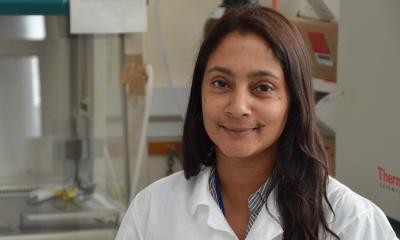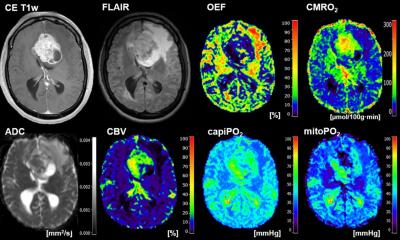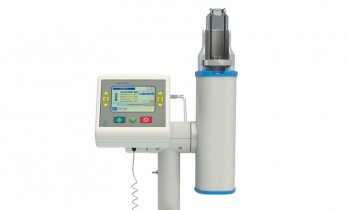Image source: Adobe Stock/fizkes
News • Radiofrequency electromagnetic radiation
Do long calls on mobile phones increase brain cancer risk? Study says no
A large international research study, COSMOS, initiated by Karolinska Institutet and Imperial College London, UK, has studied over 250,000 mobile phone users to investigate whether those who use mobile phones a lot and for a long time have a higher risk of brain tumours than others.
The study, published in Environment International, found no association between long-term cell phone use and the risk of brain tumours.
The widespread use of mobile phones and other wireless communications has led to concerns that the radiofrequency electromagnetic radiation of mobile technology may cause cancer and other diseases. The WHO and the EU have called for high-quality studies to answer these questions. In light of this, the COSMOS study was initiated almost 20 years ago.

Image source: Karolinska Institutet; photo: Andreas Andersson
Between 2007 and 2013, a large number of people in five countries answered detailed questions about mobile phone use. The participants were then followed in cancer registries to register the onset of brain tumours.
"For the first time, researchers have been able to conduct a forward-looking cohort study in which detailed information about the participants' mobile phone use was collected. The results show that those who spent the most hours on a mobile phone do not have a higher risk of developing a brain tumour than others," says Maria Feychting, professor at the Institute of Environmental Medicine, Karolinska Institutet, who led the COSMOS study on cancer risk.
The prevalence of brain tumours among the ten per cent who spent the most hours on a mobile phone did not differ significantly from those who used the mobile phone significantly less. People who started using a mobile phone more than 15 years before answering the COSMOS questionnaire did not have a higher risk of developing the disease than those who had used a mobile phone for a shorter period of time.
According to the researchers, COSMOS is the only study to date that has been able to combine a prospective cohort design, which measures change in exposure and outcome over time, with detailed information about the extent of mobile phone use. COSMOS has now shown that those who talk the most on their mobile phones do not have a higher risk of brain tumours than others.
Mobile telephony technology is constantly changing, and some of the tumours we studied are very rare
Maria Feychting
In 2011, the WHO's Cancer Research Institute, IARC, classified radiofrequency fields as 'possibly carcinogenic'. This assessment was largely based on the case-control studies that asked brain tumor patients and healthy controls retrospectively about their previous mobile phone use.
The researchers point out that the results from COSMOS will be an important contribution to the scientific basis for future health risk assessments, but that more research is needed. "Mobile telephony technology is constantly changing, and some of the tumours we studied are very rare. Therefore, we will continue to follow the COSMOS participants in order to be able to draw more reliable conclusions about possible risks in the long term," says Maria Feychting.
In Sweden, the study was funded by the Swedish Research Council, the Swedish Council for Working Life, Health and Welfare (FORTE), AFA Insurance, the Swedish Radiation Safety Authority and VINNOVA (see the study for more information on funding).
Source: Karolinska Institutet
11.03.2024











